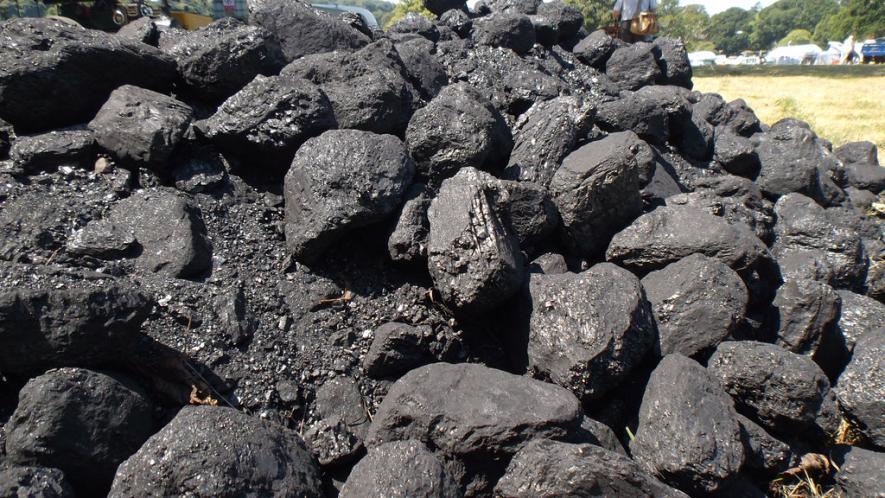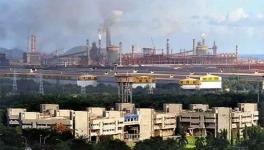Ex-Bureaucrat Questions Power Ministry's Insistence on Buying Imported Coal

Representational image. | Image courtesy: Flickr
EAS Sarma, former secretary to the Government of India, has written to cabinet secretary Rajiv Gauba in a matter concerning the Punjab State Power Corporation Limited (PSPCL). As per media reports, the PSPCL has been seeking to draw coal supplies from one of its mines in Jharkhand.
However, the Union Ministry of Power, rather than allowing the PSPCL to do so, is insisting that the latter buys coal from imported sources. As per Sarma, importing coal (to the extent of 6% of PSPCL's requirement) would "impose a heavy differential cost burden on PSPCL and the electricity consumers of Punjab." All this is being done, Sarma alleges, to benefit "a few domestic companies supplying coal from their overseas mines." In his letter, Sarma urges the cabinet secretary to advise the Ministry of Power not to insist that state power generation companies buy imported coal at over-invoiced prices.
Here is the text of the full letter:
To
Shri Rajiv Gauba
Cabinet Secretary
Government of India
Dear Shri Gauba,
In my letter of October 16, 2023, I invited your attention to a number of investigative news reports on how some domestic companies owning overseas coal mines are continuing to exploit the State power utilities by over-invoicing coal supplied to them, largely as a result of a sellers’ market created by the concerned Central Ministries by causing a man-made domestic coal crisis and forcing State power utilities to procure coal supplies from overseas sources. In that letter, I demanded that an independent enquiry be commissioned to fix the responsibility for the consequent cost burden imposed by those Central Ministries on State power utilities and electricity consumers.
In this connection, I invite your attention to a very recent news report which refers to how the Punjab State Power Corporation Ltd. (PSPCL) is seeking to draw coal supplies from its own Pachhwara coal mine in Jharkhand and how the Union Ministry of Power (MOP) has instead been insisting on PSPCL buying coal from imported sources to the extent of 6% of its requirement, which will impose a heavy differential cost burden on PSPCL and the electricity consumers of Punjab, just to benefit a few domestic companies supplying coal from their overseas mines, fully corroborating the fears expressed by me in my letter cited above.
The following are the concerns that arise on account of the MOP forcing PSPCL to import coal;
-
PSPCL’s plants need 50 lakh metric tonnes of coal per annum. PSPCL’s Pachhwara captive coal mine can yield up to 70 lakh metric tonnes annually. The thermal plants in Punjab are located at an average distance of around 1,325 km from Mundra port, while the average distance of mines from where the thermal plants are getting coal is around 1,450 km. The difference in the lead distance is thus very nominal, and in view of the astronomical prices quoted by suppliers of coal from overseas coal sources, coal from Pachhwara captive coal mine would be much cheaper compared to imported coal any day.
-
According to PSPCL sources, “last year PSPCL spent ₹520 cr on import of four lakh tons of imported coal. Not only will this amount be saved, but PSPCL can also save an additional ₹600 cr because of having a coal mine of its own. This will reduce the burden on PSPCL”.
-
For reasons best known to it, the Centre appears to have allowed the use of coal from Pachhwara to private thermal plants in Rajpura and Talwandi Sabo. It is ironic that it is PSPCL that is bearing the fixed and recurring costs of producing coal from Pachhwara, but as a result of the Centre’s diktats, a portion of the financial benefit that ought to have come to the PSPCL is being unfairly diverted to the two private power plant promoters. In the ultimate analysis, it appears that the MOP’s directions openly discriminate against PSPCL, and they force the State power company to bear additional costs just to pass on corresponding benefits to private power plant promoters, who may not fully pass them on to the electricity consumers of the State.
-
MOP’s decision to force PSPCL to import coal would also additionally benefit private port promoters in Gujarat, whereas a corresponding quantity of coal moved by railways would have benefitted the Railways, which is trying to enhance the share of freight traffic in its revenue portfolio. Apparently, the MOP’s directions are openly discriminating against the CPSEs to benefit private suppliers of overseas coal and private promoters of Gujarat ports.
-
As it is the PSPCL that is operating the Pachhwara coal mine through an MDO, its effort is to take full advantage of it by enhancing the mining capacity of Pachhwara in the coming years to 15 lakh million tonnes per year to get the maximum benefit from this mine and meet its future coal requirements fully.
-
The MOP has been directing the State generating companies to import coal under Section 11 of the Electricity Act of 2003, though that Section empowers it to issue directions only to generating companies within its jurisdiction. Therefore, it may not be appropriate for that Ministry to invoke authority under Section 11.
In other words, the prevailing man-made coal crisis and the continuing insistence by the MOP that State power generation companies should buy imported coal at over-invoiced prices has adversely affected almost all State power generation companies, as illustrated by the latest PSPCL case.
In my view, your office should advise the MOP to revoke its directions to the State generation companies on the compulsory import of coal pending an independent enquiry.
In the specific case of PSPCL, the State power company should have the freedom to obtain coal from whichever source it prefers.
In view of the circumstances that I have highlighted in my earlier letter, there is a strong case for the Centre to take responsibility for the coal shortages and share the financial liability imposed on the State utilities on account of the import of coal.
I hope your office will intervene urgently in the matter.
Regards,
Yours sincerely,
E A S Sarma
Former Secretary to the Government of India
Visakhapatnam
Get the latest reports & analysis with people's perspective on Protests, movements & deep analytical videos, discussions of the current affairs in your Telegram app. Subscribe to NewsClick's Telegram channel & get Real-Time updates on stories, as they get published on our website.
























